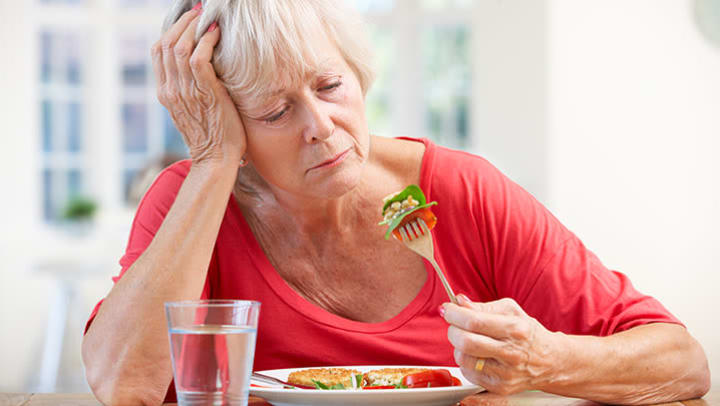Picky eating habits can reappear as we age. It's frustrating when you young nephew refuses to eat anything green, but potentially dangerous when your diabetic father refuses to give up pasta. AgingCare.com suggests ways for caregivers to help their loved ones make healthy choices.
1. Incorporate Changes Gradually
There are two reasons for easing your loved one into a new diet. First, no one can be expected to change palates overnight. If your mom has been a meat-and-potatoes gal her entire life, it will take her a while to even warm up to the idea of the pescatarian diet that her doctor recommended. Begin by including fish as an entree twice a week, maybe substitute mashed peas for her mashed potatoes at other mealtimes. Gently introduce healthier foods.
The other reason is generational: elderly people are often averse to change. No matter how valid the reason (or authoritative the source), your loved one might skeptical of what they perceive as "change for the sake of change." Your dad ate a breakfast of white bread toast every morning for sixty years, now suddenly everyone's into the "whole grain fad" but he's not fooled, no sir. The article advocates that caregivers combat this attitude by slowly introducing different, healthier foods: include whole wheat toast a few days a week, then eventually work up to oatmeal. The more sudden the change, the less receptive he'll be.
2. Set an Example
Caregivers, you must practice what you preach. Your father will not acquiesce to dinner of steamed tilapia if he sees that you are eating a Big Mac. Eating meals with your loved one is important anyway, but it's vital when you are changing the diet of a family member. No one likes to be singled out, no matter the reason. This has the added advantage of healthier meals for you or even your entire family. Your elderly dad will feel even more included if he shares the same meal as your family--he and his granddaughter might even bond over their mutual dislike of mashed cauliflower.
3. If All Else Fails, Get Creative
You are at the end of your tether. Your dad's doctor has patiently and repeatedly explained how his diet can affect his diabetes, but he still refuses to eat vegetables. Your abuela has been cooking with lard since before even your father was born, young man, and she will not switch to some weird oil now. What do you do when your loved one absolutely refuses to budge? You get creative--and maybe a little sneaky.
Does your mom need to cut back on carbs? Mix in mashed cauliflower with her mashed potatoes. Look for healthier versions of their favorite foods: peanut butter with Omega-3s, or ketchup with sucralose instead of high fructose corn syrup. Smoothies are an easy and palatable way to include nutrients that your loved one might otherwise avoid. Does your dad need more protein? Just add wheat germ to his smoothie.
Note: ALWAYS consult your loved one's primary care provider before you start them on ANY nutritional supplements. Supplements could potentially interact with prescription medication, or your loved one might have another adverse reaction or sensitivity. Talk with their doctor before you act.
Your loved ones made sure that you got the nutrition you needed growing up. It's your turn to do the same for them. Follow Aging Care's suggestions to make the transition to a healthier diet easier for everyone.
For more information, check out Agingcare.com


